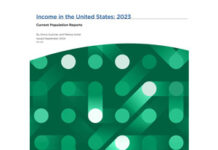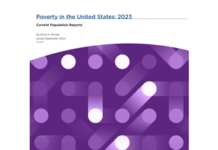Counties With Historical Ties to Lynching Associated With Low Economic Mobility Among Blacks
A new study has found an association between counties in the southern United States with a high incidence of historical lynchings and current poor economic opportunities for those counties' Black residents.
Black Americans More Likely to Be Depressed and Lose Sleep Following Workplace Mistreatment
The authors estimated that Black employees who were mistreated at work lose 100 minutes of sleep per night compared to White people who were or were not mistreated, as well as Black people who were not mistreated.
Doctors Significantly More Likely to Use Negative Language in Post-Visit Summaries of Black Patients
Compared to White patients, the summaries of visits with Black patients were significantly more likely to include negative adjectives, such as unkind or stupid, as well as words associated with fear or disgust, such as attack or criticize.
Study Examines Multilevel Societal Factors Contributing to Gun Violence in Black Communities
A new study led by Tameka Gillum, associate professor at the University of New Mexico, has examined the individual, relationship, community, and societal factors that contribute to gun violence in Black communities.
The Economic Gap Between Black and White Americans Born Into Low-Income Families Is Shrinking
A new study from scholars at Harvard, Cornell, and the U.S. Census Bureau has found a significantly smaller economic gap between Black and White millennials from low-income families that has not seen in prior generations.
Study Finds Social Factors Are Main Cause for High Rates of Dementia Among Black...
Latin Americans of African descent are significantly more likely to experience dementia compared to people of different ancestry. However, once results were adjusted for various social factors, the association between genetics and cognitive decline disappeared.
Heavy Policing Associated to High Rates of Suicide in Black LGBQ Community
The research team found Black queer participants living in areas with racist and heterosexist policies were more likely to experience suicidal tendencies. In contrast, White heterosexuals in the same areas were associated with reduced rates of suicidal behavior.
Living in a Disadvantaged Neighborhood May Be Responsible for Increased Levels of Prostate Cancer...
In the United States, Black men are significantly more likely than White men to be diagnosed with and die from prostate cancer. A new study has sought out to determine if living in a disadvantaged neighborhood could be responsible for this disparity.
Significant Increases in Homicides Partly Responsible for Racial Disparities in Life Expectancy During COVID-19...
From 2019 to 2020, the United States experienced a 30 percent increase in homicides - the largest one-year increase in over a century. A new study from the University of Wisconsin-Madison has found this increase was largely responsible for the widened Black-White life expectancy gap during the pandemic.
Socioeconomic Factors that Influence Black-White Achievement Gap Among Elementary Students
The report authors write, "The time to act is now. By enacting comprehensive and inclusive policies, we can narrow achievement gaps and create a more just educational landscape for the next generation."
HBCUs Have Experienced a Sharp Decline in Black Male Student Enrollment
In 1976, Black men accounted for 38 percent of all HBCU students. As of 2022, that rate has dropped to 26 percent. Furthermore, this share of Black male students is now roughly equal to the share of non-Black HBCU students.
Pharmacies in Segregated Neighborhoods Are Less Likely to Dispense Prescriptions for Opioid Use Disorders
A new study led by Johns Hopkins University has found pharmacies in historically racially and economically segregated neighborhoods are over two times as likely as those in advantaged neighborhoods to restrict prescriptions to treat opioid use disorders.
Black Patients Less Likely Than White Patients to Receive Diagnostic Imaging in the Emergency...
According to a new study, Black patients who visit the emergency room are significantly less likely to receive diagnostic testing than White patients, despite reporting the same symptoms.
Study Finds Significant Racial Disparities in Exposure to Tobacco Advertisements on TV
A new study has revealed that roughly 12 percent of American adults encounter tobacco-related marketing when watching TV traditionally or via streaming platforms. However, among Black Americans, that exposure jumps to more than 19 percent.
Harvard Study Examines How Prejudice is Learned Through Observing Behavior
Through a series of experiments in which participants observed behavior from others driven by racial stereotyping, the authors found illuminating insight into how individual prejudices can spread to others and potentially society at large.
Pew Research Center Reports on Demographic Breakdown of the American Middle Class
According to a report from Pew Research Center, Black Americans are the least likely racial group to be middle-class. Roughly 46 percent of all Black households are middle-class, compared to national rate of 52 percent among all American households and 55 percent of all White households.
Study Finds Widening Racial Diversity Gaps Between STEM and Non-STEM Fields
While the overall representation of Black faculty has barely increased over the past 20 years, a new study has found a small increase in Black faculty representation since 2016. However, this is almost entirely due to an increase among Black assistant professors in non-STEM fields.
Study Finds Black Women Shoulder the Brunt of Low Pay Occupations and Temporary Work
Overall, the median income for Black women in the United States is roughly $15,000 less than the median income for White men. Black women were found to be significantly more likely to work jobs with lower wages, less benefits, and part-time hours.
UNCF Report Highlights the Positive Impact of HBCUs on the United States Economy
According to the UNCF's analysis, HBCUs generate $16.5 billion in annual spending and create just as many jobs as a large publicly-traded American company.
The Racial Gap in Median Income Increased in 2023
For non-Hispanic White households in 2023, the median income figure was $89,050. In 2023, the median Black household income of $56,490 was 63.4 percent of the median income of non-Hispanic White families.
The Poverty Rate Among Black Americans Increased in 2023
In 2022 poverty rate rate was the lowest on record for Black Americans at 17.1 percent. In 2023, the poverty rate for African Americans rose to 17.9 percent. This was 2.3 times the rate for non-Hispanic White Americans.
Despite Overall Improvements in California’s Air Quality, Racial Disparities Persist
Historically racist housing policies, like redlining, have forced Black and other underrepresented communities into areas with high exposure to air pollution, such as those near highways and seaports. Although these areas have greatly improved their pollution exposure, relative disparities compared to White neighborhoods have increased since 2000.
Exposure to a Large Local Police Force Associated With Lower Economic Mobility for Black...
A new study from scholars at the University of North Carolina at Chapel Hill and Yale University has found exposure to a large local police force during adolescence and young adulthood is associated with increases in the racial economic mobility gap between Black and White American men.
Georgetown University Examines Racial Gap in Graduate Degree Attainment in the United States
The representation of Black graduate degree holders is 3 percentage points less than their representation in the U.S. population. Furthermore, Black Americans with graduate degrees earn on average $18,000 less than their White peers and $34,000 less than their Asian peers in annual income.
Despite Recent Gains, Racial Inequalities Persist in Household Income and Wealth
A new report from the Joint Center for Political and Economic Studies and the Center for Economic Policy and Research has cautioned that even though Black Americans have made notable economic gains in recent years, significant racial inequalities persist and will continue to persist for hundreds of years if the current rate of progress does not significantly improve.
Encountering Online Microaggressions is Associated With Poor Sleep Quality for Black Women
When Black women encounter online microaggressions directed at other Black women, they are more likely to experience poor sleep quality. These vicarious online microaggressions were found to be more harmful for sleep quality than encountering in-person microaggressions.
Study Finds Preterm Births Among Low-Income Black Women Are on the Rise
From 2014-2022, the rate of preterm births in the United States rose from 6.8 percent to 7.5 percent. However, among Black women with public insurance, this rate jumped to a staggering 11.3 percent.
Federal Report Examines Racial Differences in Parent Involvement in K-12 School Activities
The Department of Education has recently released their 2023 edition of their Parental and Family Involvement in Education report. The study outlines parents' involvement in children's activities and school meetings, their satisfaction with school characteristics, and their communication with teachers and school officials.
Pew Research Center Report Examines Changes in Enrollments at HBCUs
Since 1976, the share of Black student enrollment at HBCUs has increased by 15 percent, while the share of non-Black HBCU students increased by 117 percent. This has caused a decrease in Black students' overall representation at HBCUs, which has dropped from 85 percent in 1976 to 76 percent in 2022.
Black Junior Professors Receive Unfair Decisions When Seeking Promotions and Tenure
A new study led by the University of Houston has found Black and Hispanic junior faculty members are more likely to receive negative votes and less likely to receive unanimous approvals from their promotion committees. They are also judged more harshly for their academic output compared to peers with similar productivity.
Study Finds Black High School Students Tend to Doubt Their Math Teachers’ Capabilities
Black high school students, particularly Black girls, tend to doubt their math teachers' capabilities to provide them with an adequate education, resulting in a frequent misunderstanding of the importance of math skills in pursuing their future careers.
Federal Report Uncovers Racial Disparities in the Persistence of First-Time College Students
Among all first-time postsecondary students who began their higher education in 2019-2020, 22 percent were no longer enrolled in any institution three years later. When broken down by race, nearly 30 percent of Black students in this group were no longer enrolled in higher education after three years, compared to one fifth of their White peers.
Strong STEM Aptitude in High School Does Not Translate to STEM College Enrollment for...
A new study from New York University has debunked a popular theory that early STEM success in childhood translates to STEM enrollment in higher education. According to their findings, a significant proportion of Black students who score well in STEM high school classes ultimately do not declare a STEM major in college.
American Academy of Arts & Sciences Tracks the Status of Humanities Degrees at HBCUs
In 2022, HBCUs awarded 2,907 bachelor's degrees in humanities fields. This was a 15 percent decrease from the recent high of 3,434 degrees awarded in 2014.
Working With Predominately White Co-Workers Increases Turnover Rate for Black Women
In a new study from Harvard University, scholars have found Black women are the only race-gender group adversely affected by working with primarily White co-workers. Compared to White women, they are 51 percent more likely to leave their job within two years.
The Importance of Same-Race Peer Groups for the Success of African American Doctoral Students
Scholars from George Washington University have shed light on the importance of participation in same-race peer groups for African American doctoral students' academic success and mental health.













































